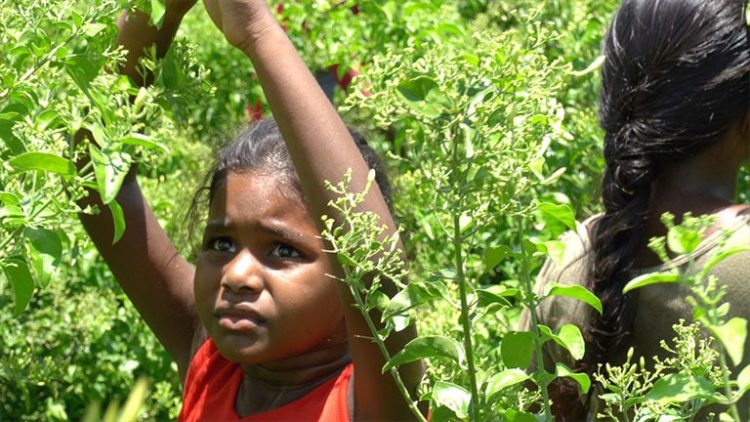On World Environment Day, regional advocacy group PAN Asia Pacific (PANAP) stressed that a healthy and safe environment that is free from toxins such as pesticides is key to protecting vulnerable populations, particularly children, from various illnesses, including infectious diseases such as COVID-19.
In a webinar entitled “Protecting Children from Toxins Amid COVID-19,” health experts emphasised that children continue to be exposed to massive amounts of pesticides, affecting their health and well-being. Aside from pesticides applied in agricultural fields, affecting directly children in rural communities, children are also exposed to pesticides in food residues as well to pesticides used in home and school gardening.
Dr. Vivien How, senior lecturer at the Department of Environmental and Occupational Health, Universiti Putra Malaysia, shared results of research studies showing levels of organophosphate pesticides detected in the urine of Orang Asli children living in agricultural island in Selangor, Malaysia. “Organophosphates are common pesticides known to disrupt neurodevelopment. Several studies have shown an association between prenatal or early-life organophosphate exposure and poorer measures of intelligence around age 7, such as lower mental and motor development scores, and reductions in perceptual reasoning and working memory,” said Dr. How. Such pesticides also disrupts children’s immune system.
Meanwhile, toxicologist Dr. Romeo Quijano, PANAP chairperson, talked about the inter-relations between health, environment, and the immune system, identifying toxic chemicals as one of the many biological disruptors of an individual’s health. “There must be immediate and long-term precautionary, preventive, and protective measures against as many health and environmental threats as possible, especially during the most vulnerable developmental period of the immune system—conception, embryonic stage, fetal development, birth, infancy and childhood,” he said.
PANAP meanwhile welcomed the Indian government’s recent move to recommend the ban of 27 Highly Hazardous Pesticides (HHPs). This includes pesticides that are particularly toxic to children, such as atrazine, chlorpyrifos, deltamethrin, malathion, mancozeb, and monocrotophos. “Many of these pesticides are already banned in other countries because of public health concerns, and it is high time that the Indian government makes a similar move. Amid the COVID-19 pandemic, it becomes more imperative to keep our environment free from pesticides and other toxins that can compromise our and our children’s ability to keep infectious diseases at bay,” said Deeppa Ravindran, PANAP Campaign Coordinator.### Reference: Deeppa Ravindran, Protect Our Children From Toxic Pesticides Campaign Coordinator, deeppa.ravindran@panap.net.
For the webinar, you may register via Zoom, https://zoom.us/meeting/register/tJEqf-qvqj0sEtP-t4rfCYHF7s-rKQg1LprH or watch live via the PANAP Facebook page








Discussion about this post